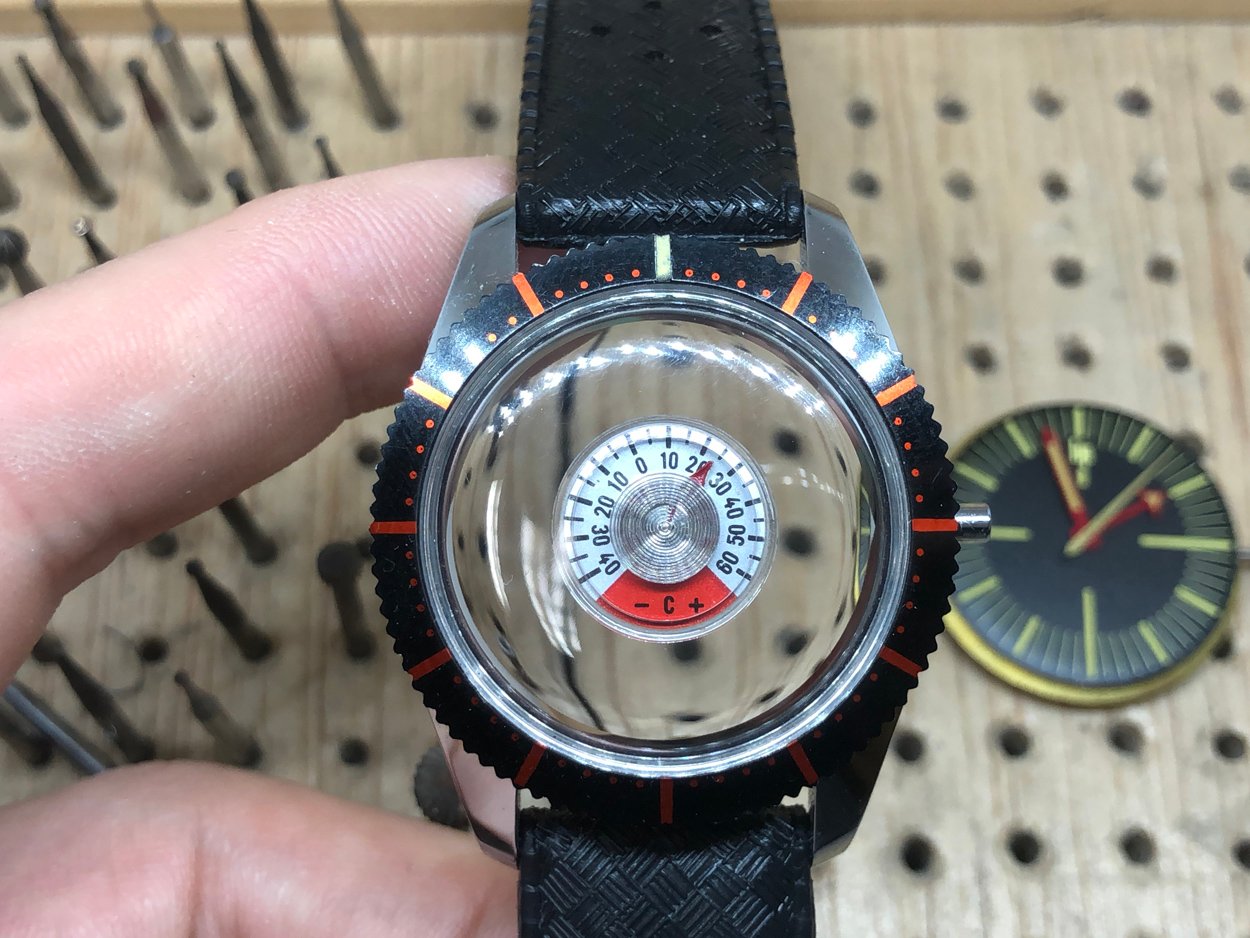#TBT The Obscure LIP Thermometer With A Durowe Movement
There is no better time to write about this watch than now. I am not sure if it is me or the gaskets, oils and tiny particles in all my 60+ year old watches that don’t feel very comfortable experiencing the temperature shocks of walking from cold streets to well heated meeting rooms. Anyway, if there is one mechanical timepiece designed to enjoy this freezing January weather it would be the surrealistic LIP Thermometer from 1970.
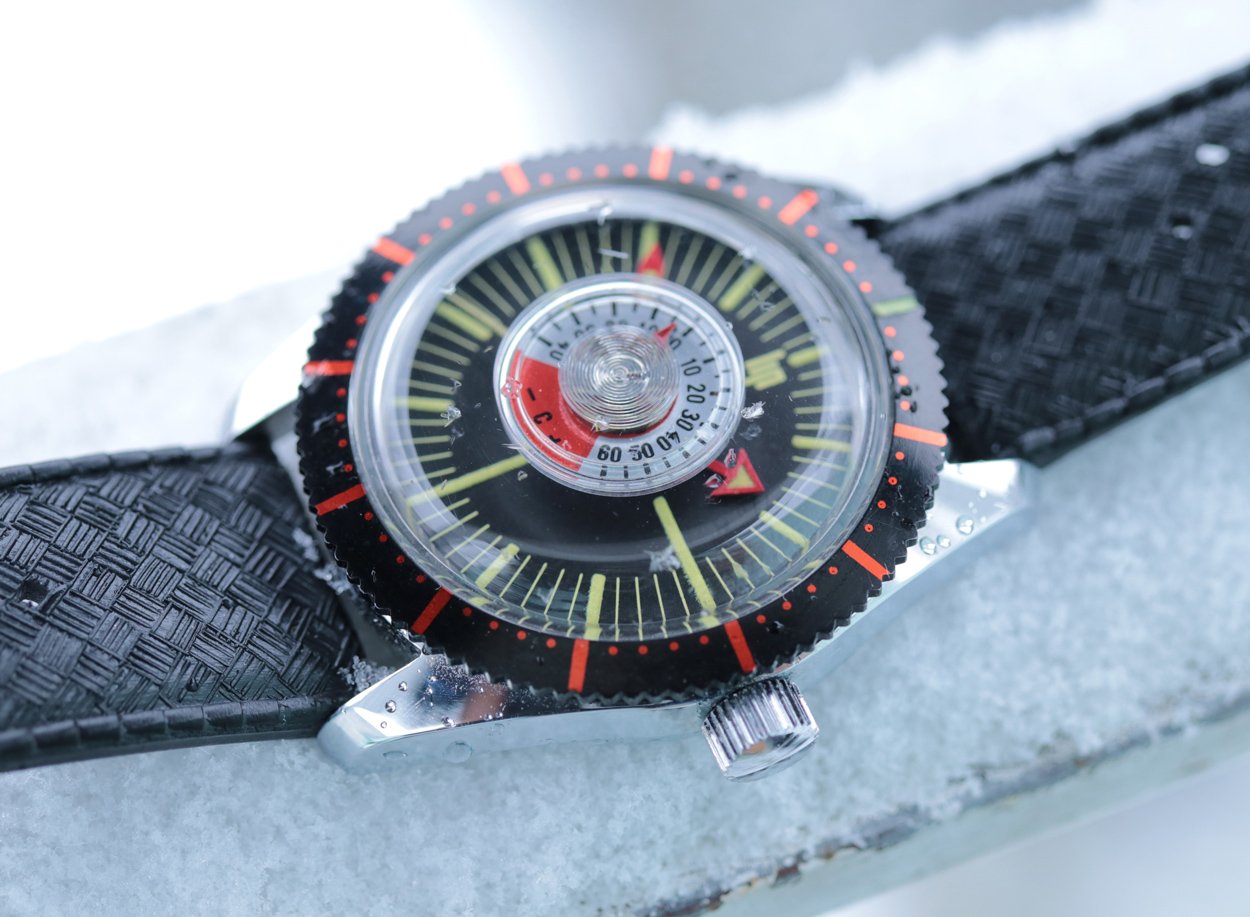
Surrealistic LIP Thermometer
Surrealistic, obscure, funky, unorthodox – you choose. I genuinely believe that the design of this LIP Thermometer with reference number 42670 deserves each one of the previously mentioned adjectives. French. Very French. Think of it as the Citroen DS of watchmaking, meaning we don’t give a damn about what the rest of world (or Switzerland in this case) is doing, we are going to make this. And by this I mean a punch-you-in-the-face style Thermometer being set in very center of the dial and non-traditional bezel styling.
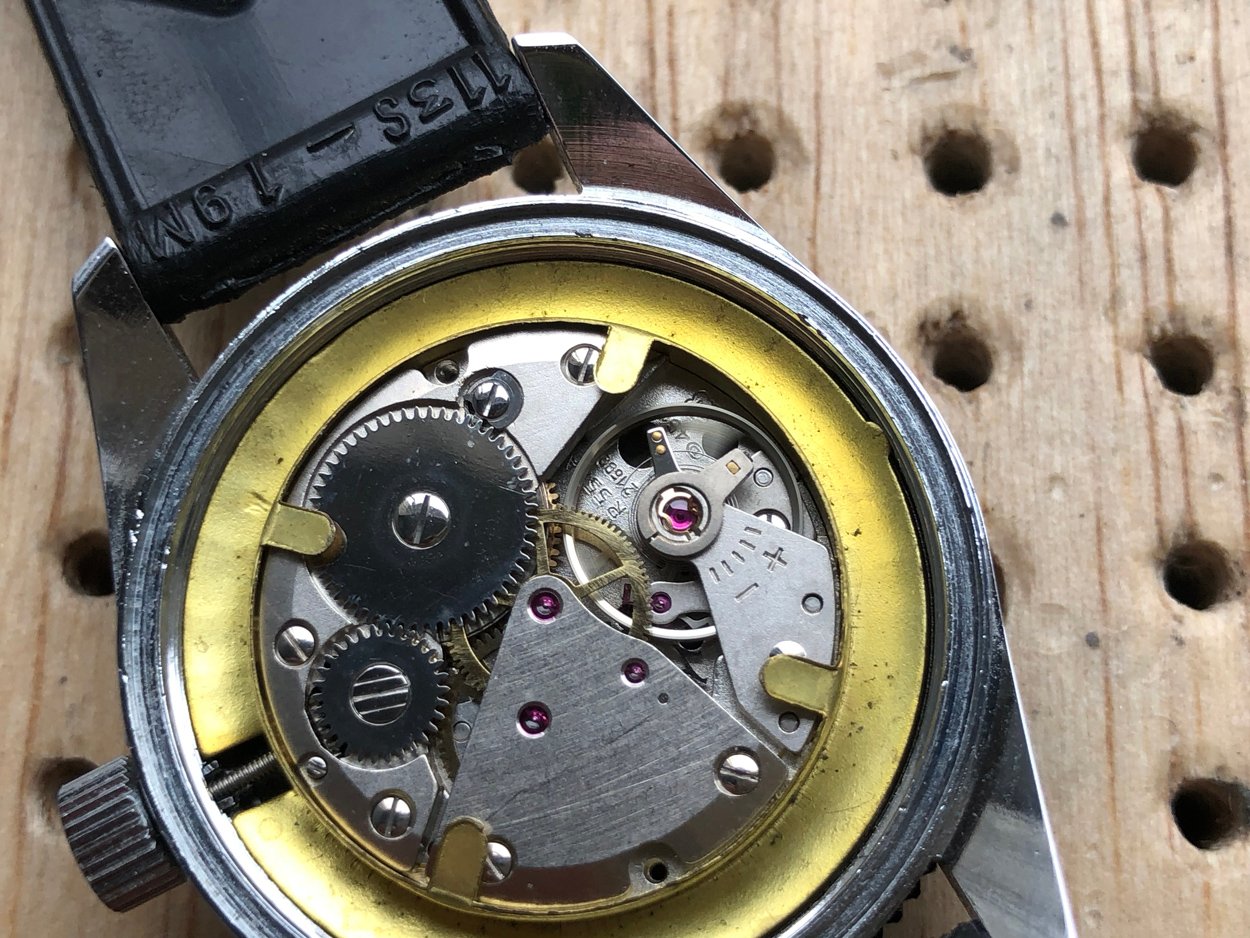
Usual Suspect LIP
LIP is not an unknown player for Fratello readers. Michael already wrote about the LIP Nautic-Ski from 1967 and its recent re-edition, Balazs retold us the colorful story about the iconic LIP Mach 2000 chronograph designed by the Roger Tallon. So rather than talk about the history of LIP let’s take a closer look on what is hidden inside. This LIP Thermometer is powered by the mechanical movement coded R557, which is basically an improved Durowe 451 caliber.
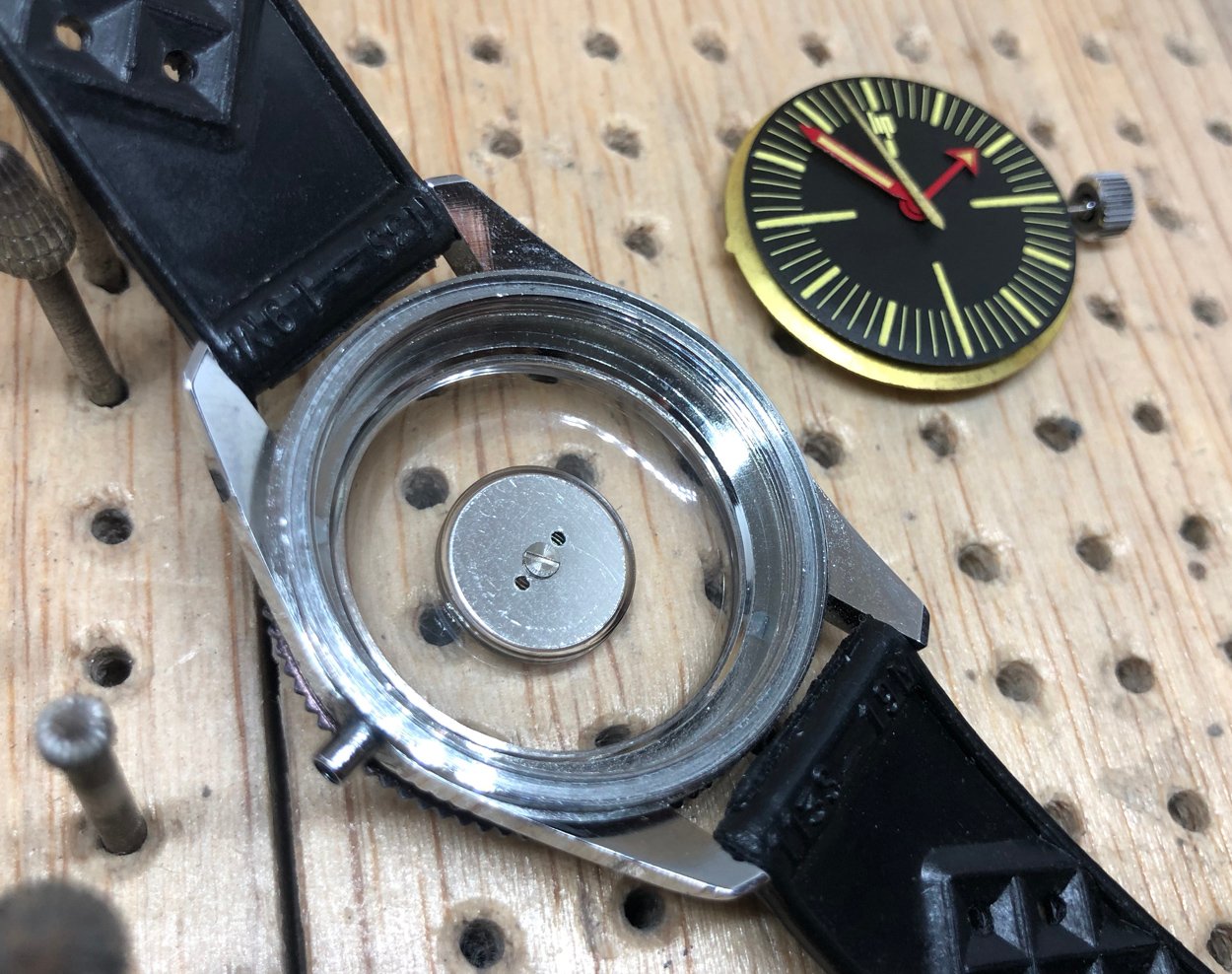
Haven’t heard of Durowe before?
No worries. Before Durowe was brought down to its knees by Quartz, it had its moments. At the top of their game, Durowe produced 80.000 movements a month, an eyebrow raising moment for everyone. Spice it up with the fact they were not a Swiss, but a German movement manufacturer (Deutsche Uhrenrohwerke) and you have yourself a truly unconventional background. Durowe was founded in 1933 by Ludwig Hummel, a successful founder and entrepreneur by today’s jargon. Not only did he decide to free Germany from a dependency on Swiss movements, but he also managed to co-found LACO. Long story short: after an affair with TIMEX, Durowe ended up under the wings of Ebauches S.A., soon to be merged under ETA. An unexpected turn of events came in 2002 when it was bought out by Mr. Schauer, the man behind Stowa. Mr. Schauer literally revived the Durowe heritage with a Stowa special limited edition carrying some new old stock Durowe movements.
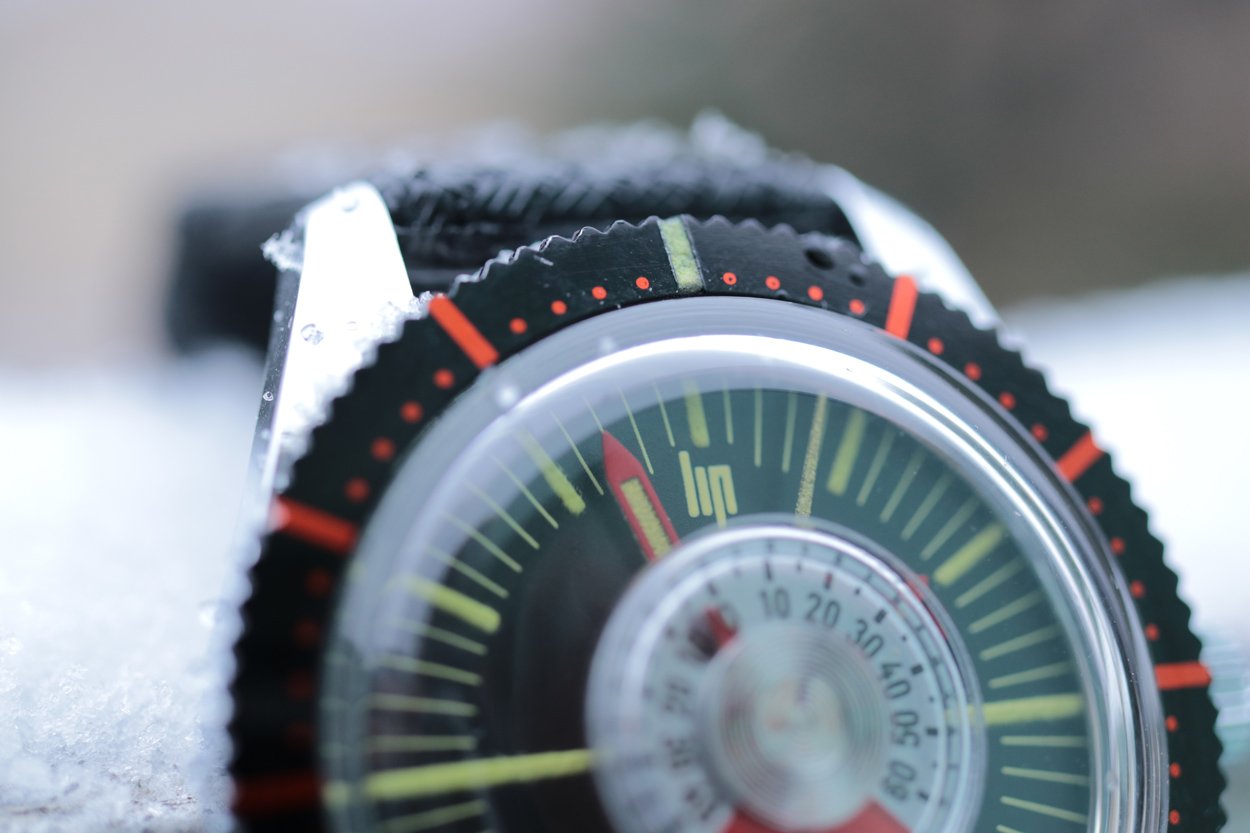
From Ball Trainmaster to LIP Thermometer?
My research on mechanical Thermometer watches started when I first saw the Ball Kelvin Trainmaster introduced in 2015. As an amateur ski mountaineer and watch enthusiast I knew I had to have one. That was before I saw the uneasy 8k USD price tag – moving on. A cheaper thermometer option was immediately put on my never-ending horology bucket list. Then one random night raid a random forum put the LIP Thermometer into my sights. It was from Hong Kong, new old stock, on allegedly original strap, perfectly boxed in an original LIP sleeve. I could never check the authenticity of the box and strap as finding a LIP Thermometer in contemporary catalogues is not easy. If you have some, please, share with us.

First look at LIP Thermometer
After a mandatory and costly bureaucratic gymnastics session with customs officers, I could finally unbox the LIP Thermometer and let my fingers play with the black/red bezel. It rotates smoothly and precisely, without any rotation clicks. It holds position firmly, rarely moving out of setting due to random hand movements. If we forget the thermometer and the slightly childish bezel style for a second, there are two major characteristics worth discussing. Style and color of indexes. First of all, both the hour and minute indexes are unbelievably long. They are all way too long, especially when contrasted to the size of the thermometer. On the other hand, the yellow lume that turned into lime-ish tones is unique and gives the dial an extraordinary touch.

Reading time on the LIP Thermometer
The LIP Thermometer is a real killer. Saying so I mean two things: First of all, it is so big that its hard to overlook it even for non-watch fan. Whether you want to believe or not, this watch will be the talk of the room, even if there’s an Ed White, two Submariners and three Pateks present. Second of all, the dial is so busy that sometimes it is really hard to find the hour hand and read the time. The thermometer is one real chunky piece of machinery built under the plexi glass, sticking out from the middle of the dial. It wouldn’t be far from the truth to say it kills reading the time. It is not really integrated into the watch design as with the aforementioned Ball. Case and point? The moment I freed the dial from plexi. Looking at the picture, you get a completely new view of the watch with a spacious dial and an amazing arrow hand. Seems to me like the LIP designers didn’t speak to the LIP engineers when putting the watch concept together. All that being said, I still like the watch.
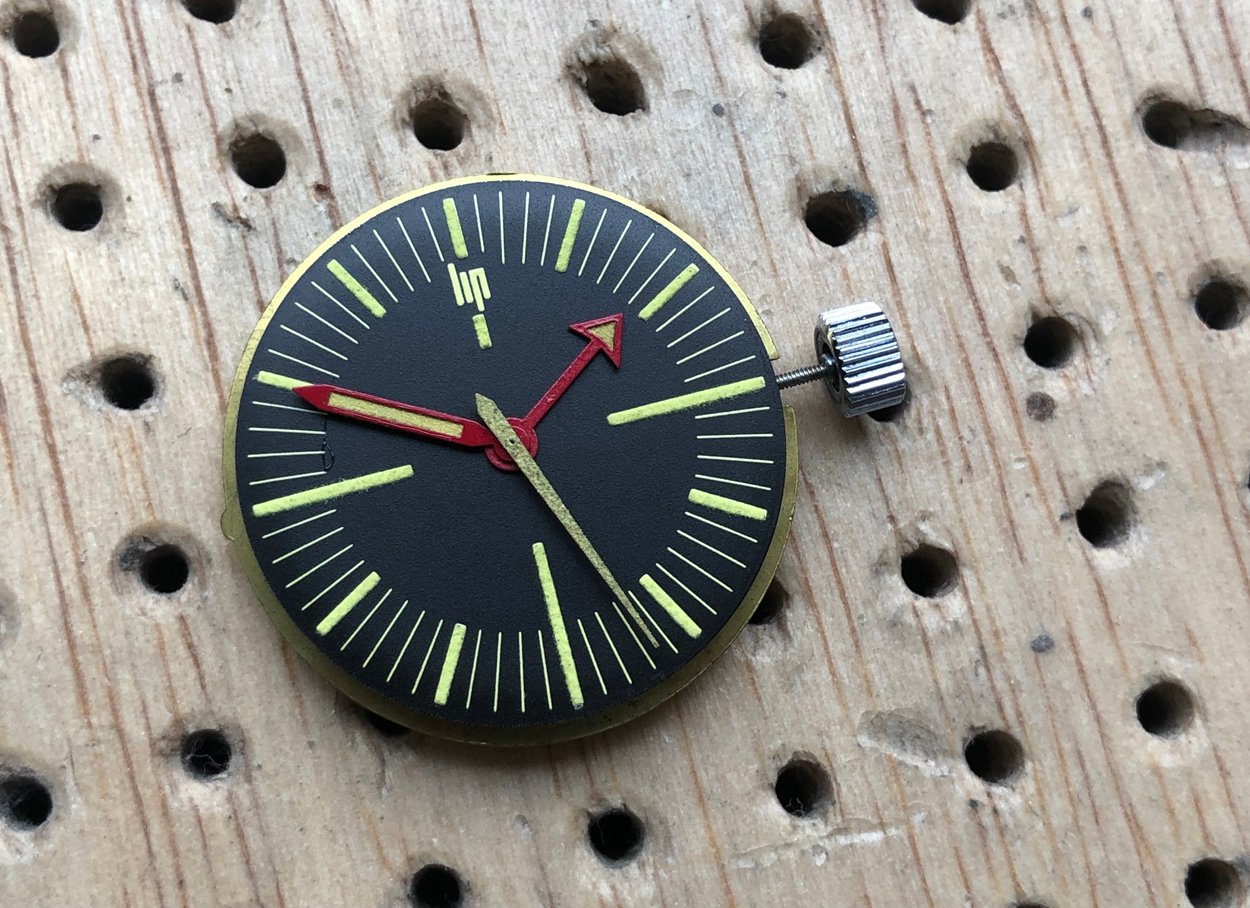
Exploring the LIP Thermometer
As you can already suspect, my curious mind had to open it. A typical new old stock watch holder would be hesitant to open the watch, afraid of leaving traces from opening the back case & thus disregarding the watch’s new old stock status and decreasing its value. Not in my case! As I could not find any pictures, I decided to go on an explanatory operation with my watchmaker. We opened the watch, knowing that we would be looking at a simple movement anyhow. As expected, the thermometer mechanism is separated from the watch completely. If you look at the plexi glass from the bottom, the thermometer is hidden under a thin sheet of metal. We decided not to go further. We assumed the thermometer is just a simple tiny bi-metallic spring that expands and stretches according to the temperature changes. I’m happy to say though that we discovered a small fun fact that one can perhaps find in the original manual. By the smallest turn of the central screw on the bottom you can easily calibrate the thermometer function.
Measuring Temperature with LIP Thermometer
This brings us to the accuracy of the thermometer. By some purists, it’s named the most useless, non-practical and most inaccurate complication ever implemented in a wristwatch. No argument there. Their objection is that if you keep your watch on the wrist your body, its temperature affects the accuracy big time. This is true. And keeping the watch off the wrist just to measure the temperature is what haters refer to as the biggest nonsense, but I don’t mind it. When I leave my LIP Thermometer unattended for 5 to 10 minutes, it does the job just fine with measurements around 1°C accuracy.
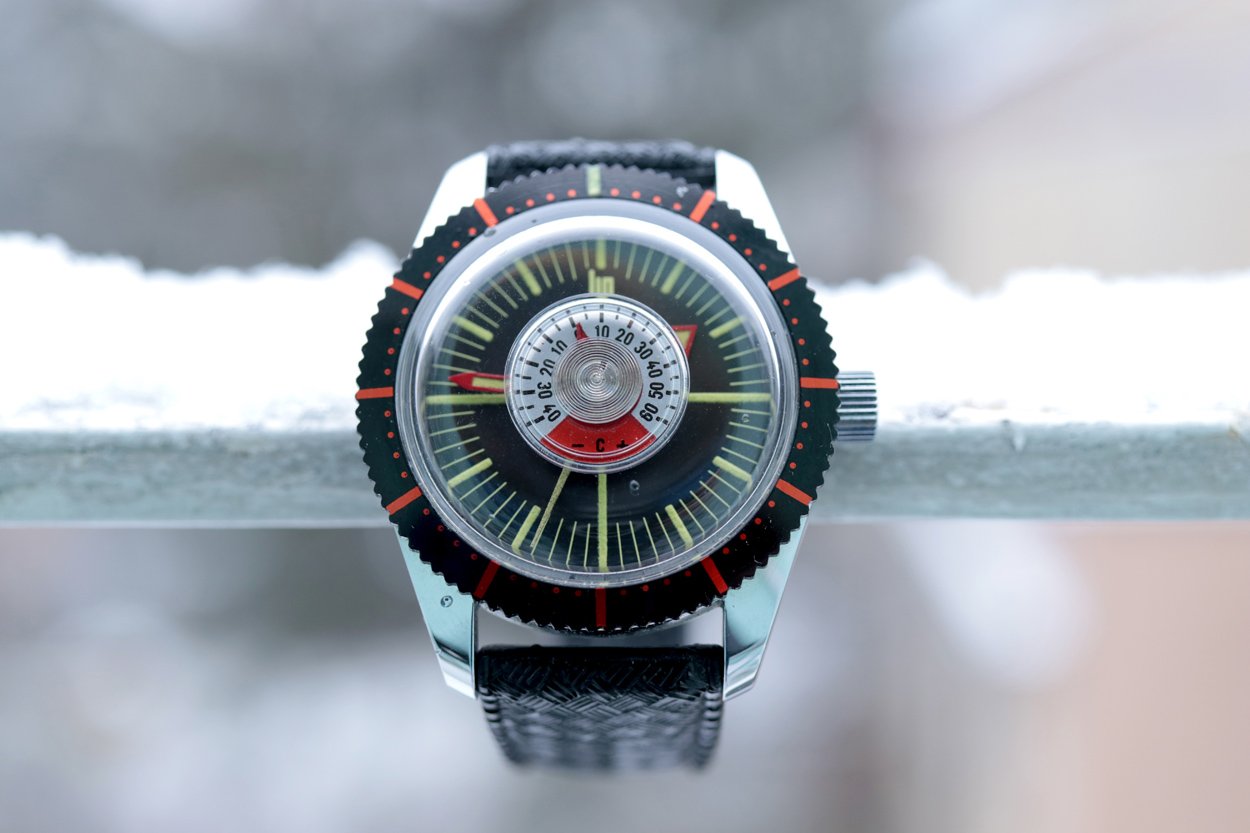
Shooting the LIP Thermometer at -5°C
The LIP Thermometer is a comfortable fit and at 36mm does not get lost on the wrist. What I particularly like is the wide crown that makes winding the watch easy. For the record I did not check the thermometer accuracy at extreme temperatures like -40°C or +60°C, but I can say it is precise for a typical European winter temperature range between 8°C and -10°C. During three sets of 30-minute photo shoots in heavy snow, the LIP Thermometer got wet and had to face solid temperature shocks. The good news is that no condensation developed under the crystal, which makes me believe it is quite waterproof. So, no need to handle the Thermometer like Chinese royal porcelain. Next time, I’ll definitely attach it to my bag on a ski mountaineering trip.
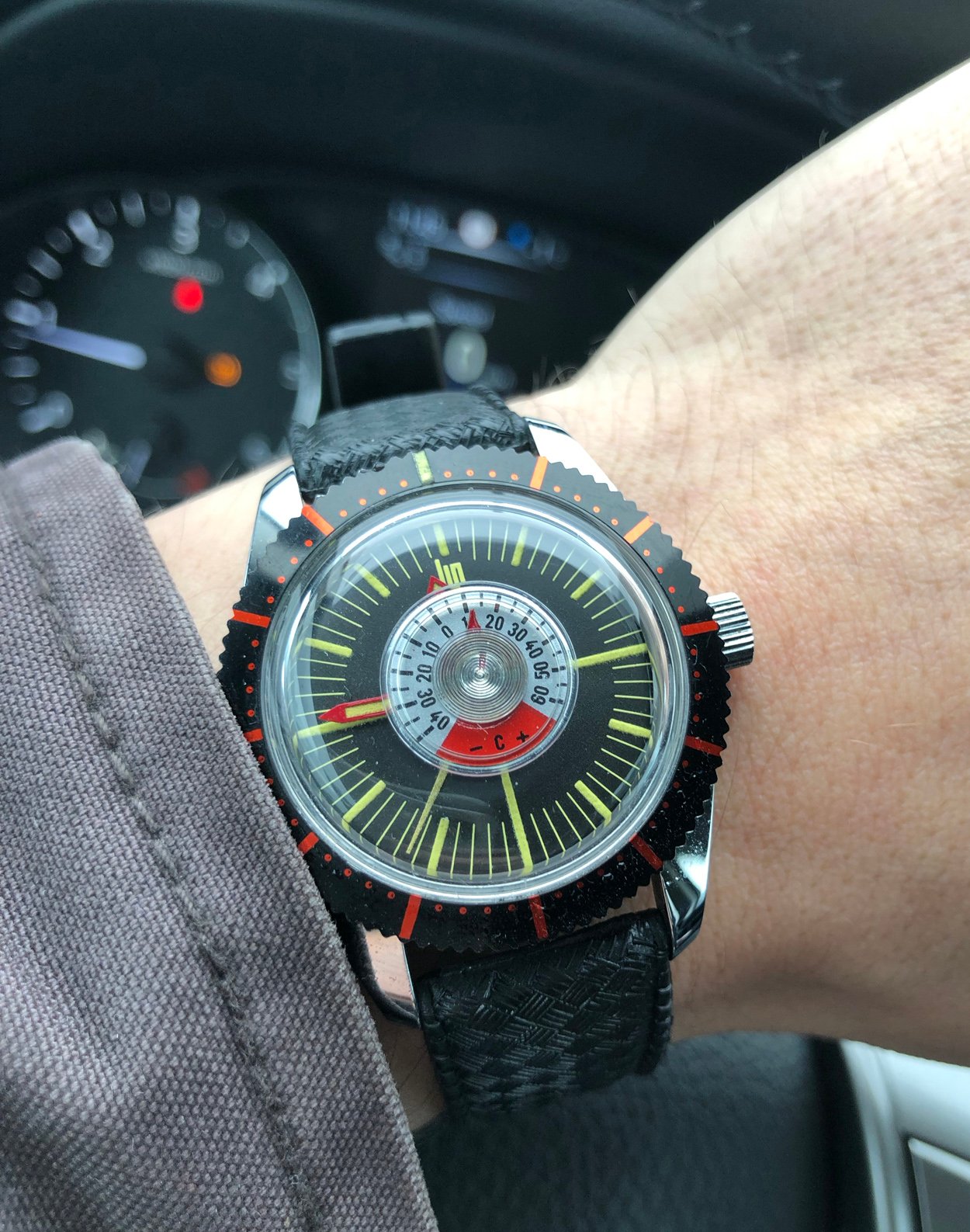
Getting Your Hands on an LIP Thermometer
I have the feeling that somebody found a bunch of NOS LIP Thermometers as there were a few of them in the same condition and color combination available around the same time. According to the available information, there was another model with a blue dial and slightly differently styled white indices. Prices vary as well, with a few being sold from 600 to 1300 euros over the past year. Verdict? You will never overwhelm Patek collectors with it on your wrist, but if your collection likes to show different ways of thinking about all the potential purposes of a mechanical watch, this wild French experiment from early 1970s might do the trick.

